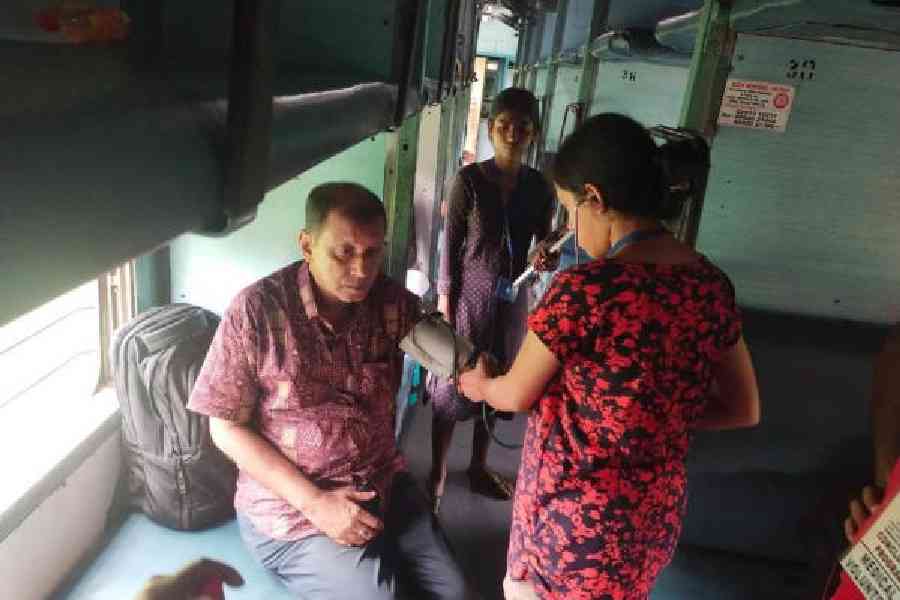Many students and junior doctors of the North Bengal Medical College and Hospital (NBMCH) — the largest state-run referral hospital in north Bengal near Siliguri – have been silently serving the traumatised and injured passengers of the Sealdah-bound Kanchenjunga Express that got rammed by a goods train last Monday.
Sushreesangita Jena, the secretary of the Medical Service Centre at the NBMCH and the North Bengal Dental College & Hospital (NBDCH) located on the same campus at Sushrutanagar in the outskirts of Siliguri, said they rushed to the spot immediately on hearing the news of the train crash.
“We simply rushed to the spot near Rangapani station. It was a public holiday (for Eid al-Adha) but everyone dropped their personal plans and rushed to the accident site,” said Jena.
Many of these were junior doctors. As they entered the coaches, they found the passengers in different conditions, Jena said.
While some only had fractured fingers, some had fractured limbs or swollen heads after falling off their berths. All had panic attacks of various levels of severity. There were people whose blood pressure had risen and others whose sugar levels had fallen. Passengers who were lucky not to suffer serious injuries showed signed of trauma after the accident. "We promptly provided passengers physical and psychological first-aid on the spot,” she added.
The junior doctors this correspondent spoke to said they had divided their members into groups at the spot and the NBMCH to ensure that the passengers of the train accident got prompt help.
Five general doctors and a senior doctor were on the spot to give emergency medicines to the injured and prescribe more medicines for later.
Junior doctors helped the seniors. But on their own, they took up the onus to provide basic psychological assistance to passengers at the scene. "There were passengers who had fallen off the top berths and were shaking with fear. We assisted many people like them,” said a junior doctor.
Sandip Sengupta, the dean of the NBMCH, praised the medical students and junior doctors of the NBMCH for "showing empathy with efficiency on a day of crisis".
He said that after the train crash, helpdesks were set up at the medical college, which the junior doctors, along with other hospital authorities, manned.
“Our medical students also donated around 70 units of blood on Monday. Altogether, with their help and those of others, we managed to get around 130 units of blood. Two medical students were assigned to take care of each injured patient, along with doctors and paramedics. From emergencies to the wards and every possible place, our students accompanied every patient that day,” said Sengupta.
Altogether, around 100 medical students and 30 junior doctors worked at the hospital that day and throughout the night to handle the emergency.
“As of now, we have with is seven patients injured in the crash. Barring one, who is critical, the others are stable,” he added.
The dean said that if required, the psychiatric department would provide psychological counselling to these patients later. “It has been found that after such an accident, many people suffer from post-traumatic syndrome. We are ready to provide them psychological support,” he said.
Gautam Deb, the Siliguri mayor who chairs the Rogi Kalyan Samiti at NBMCH, appreciated the efforts of junior doctors and medical students.
“They've been proactive and tireless,” said Deb.











